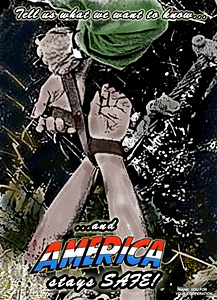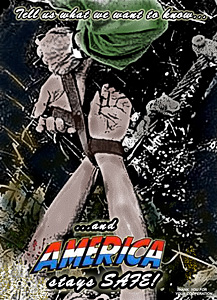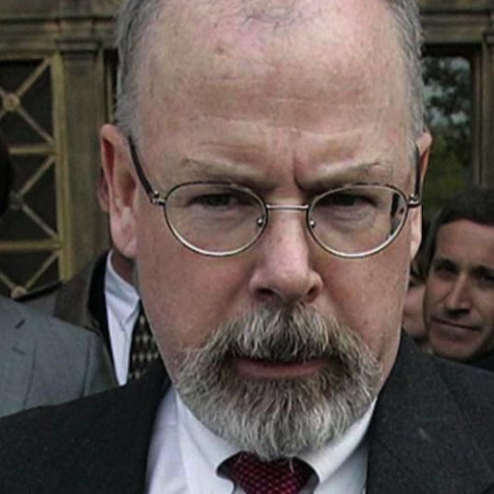History Repeats Itself: Kessler Orders Preservation of Gitmo Forced Feeding Torture Videos
With even the New York Times editorial page chiming in on Thursday (just after the Abramson firing on Wednesday, so this is clearly a big deal to them), Judge Gladys Kessler ruled on Friday that the military must stop its forced feedings of a Syrian prisoner at Guantanamo and preserve videos of him being forcibly extracted from his cell and being fed. We’ve seen this movie before. Recall that Kessler was one of at least two judges ordering the CIA to preserve video evidence of waterboarding before Robert Eatinger and Jose Rodriguez decided to go ahead with destruction of the videotapes. Considering how out of control John Bogdan, head of the Joint Task Force Guantanamo Detention Group, already has been, it would not surprise me at all for these videos to meet the same fate. Heck, given Eatinger’s current behavior in trying to use intimidation to stop further revelations on the torture front, it wouldn’t even surprise me for him to decide, through some sort of OCA role, that it is the CIA’s job to take possession of and to destroy the tapes in question.
Here is Carol Rosenberg reporting on Kessler’s ruling:
A federal judge waded deep into the Pentagon’s handling of the Guantánamo hunger strike on Friday, ordering the military to temporarily suspend forced-feedings of a Syrian prisoner at the detention center until a hearing Wednesday.
U.S. District Court Judge Gladys Kessler in Washington, D.C., also ordered the military to preserve any video recordings guards might have made hauling Syrian Mohammed Abu Wa’el Dhiab, 42, from his cell and giving him nasogastric feedings in a restraint chair. He has also been identified as Jihad Dhiab in court papers and news reports.
The order appears to be the deepest intrusion into prison camp operations by the federal court during the long-running hunger strike, which at one point last year encompassed more than 100 of Guantánamo’s 154 detainees.
The military has since December refused to disclose how many detainees are force-fed as hunger strikers each day, and it was not possible to know if Navy doctors at the base considered Dhiab at risk by perhaps missing four or five days of tube feedings.
Rosenberg goes on to inform us that it only recently was learned that the videos exist. She also realizes that whether Bodgan and his crew will honor the order is an open question:
Military spokesmen from Guantánamo and the U.S. Southern Command did not respond Friday night to questions from the Miami Herald on whether the 2,200-strong military and civilian staff at the detention center had received and would honor the order.
Recall that when the waterboarding tapes were destroyed, that destruction was in direct violation of court orders, including one from Kessler: Read more →





 When the government possesses videotape evidence of the torture of subjects under its dominion and control, there is
When the government possesses videotape evidence of the torture of subjects under its dominion and control, there is